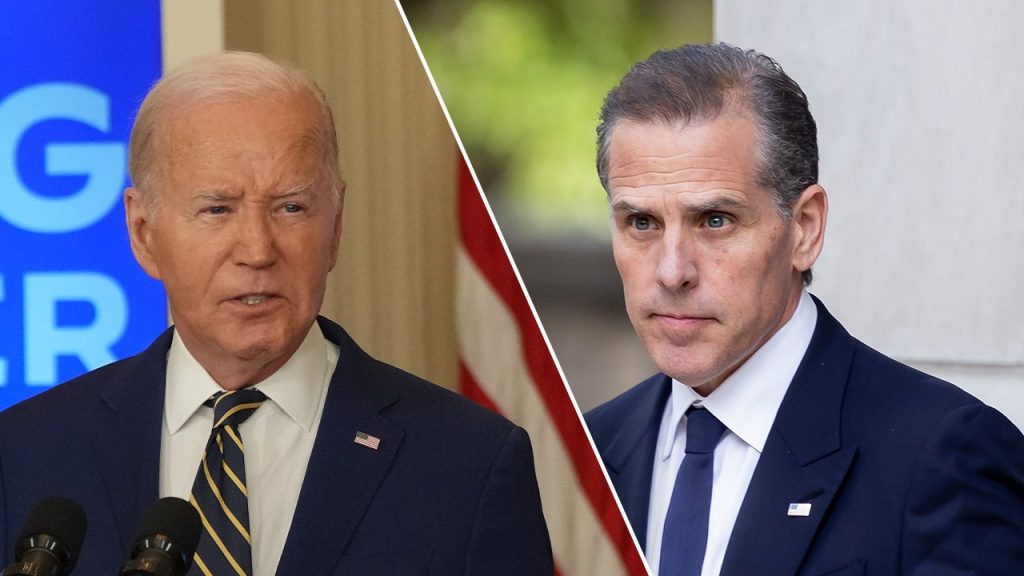President Joe Biden’s decision to exit the presidential race in July was influenced by his son Hunter Biden’s struggles in the final years of his first term, causing him to feel a sense of guilt. Bob Woodward’s new book “War” provides an inside look into both the Trump and Biden presidencies, showing vulnerable moments and foreign policy challenges they faced. The pressure for Biden to drop out of the race intensified after a disastrous debate performance in June, with concerns about his fitness to take on Donald Trump again. Despite initially believing he could win a second term, Biden eventually bowed out, with factors like his son’s legal troubles playing a role.
Woodward’s book reveals the toll Hunter Biden’s troubles took on the President, describing them as his “real war” and a constant source of preoccupation. Biden struggled with a sense of guilt for any scrutiny related to his son’s issues, which weighed heavily on him. Despite dealing with significant global crises during his first term, it was Hunter’s struggles that affected Biden most profoundly, leading to heartbreak and a significant emotional toll. The President’s attempts to protect his son and pull him out of troubles proved unsuccessful, adding to his inner turmoil.
During a private lunch, Secretary of State Antony Blinken urged Biden to drop out, expressing concerns about his legacy and questioning whether he wanted to continue facing scrutiny for the next four years. Despite believing he could win, Biden ultimately chose to step down, with personal and party pressures playing a part in his decision. The book doesn’t specify the extent to which Hunter’s legal issues impacted Biden’s decision, but it was likely a factor among other considerations.
Woodward’s book offers insights into the emotional struggles of the President, showing how personal issues involving his son added to the pressures of his role. Hunter Biden’s troubles were described as a constant worry for Biden, who tried to protect his son while dealing with the guilt of his presidency being a contributing factor to the scrutiny Hunter faced. Despite facing significant challenges on a global scale, including the pandemic and wars in Europe and the Middle East, it was Hunter’s issues that seemed to impact Biden the most.
The book captures the intimate moments of both the Trump and Biden presidencies, offering a glimpse into their thinking during challenging times. Biden’s decision to exit the race was influenced by a combination of factors, including his son’s legal troubles and pressure from party leaders. His struggle to balance personal issues with the demands of the presidency is highlighted, showing a more vulnerable side to the President. The emotional toll taken by Hunter’s struggles is emphasized, illustrating the impact of personal matters on political decisions.
Overall, “War” provides an unflinching look at one of the President’s most emotionally difficult struggles, shedding light on the personal considerations that went into his decision to step down from the race. Despite the challenges faced during his first term, it was Hunter Biden’s issues that seemed to weigh heaviest on Joe Biden, leading to a difficult decision to exit the presidential race. The book offers a rare insight into the personal struggles of a President dealing with intense political pressures and family issues, showing the human side of leadership in the face of adversity.














